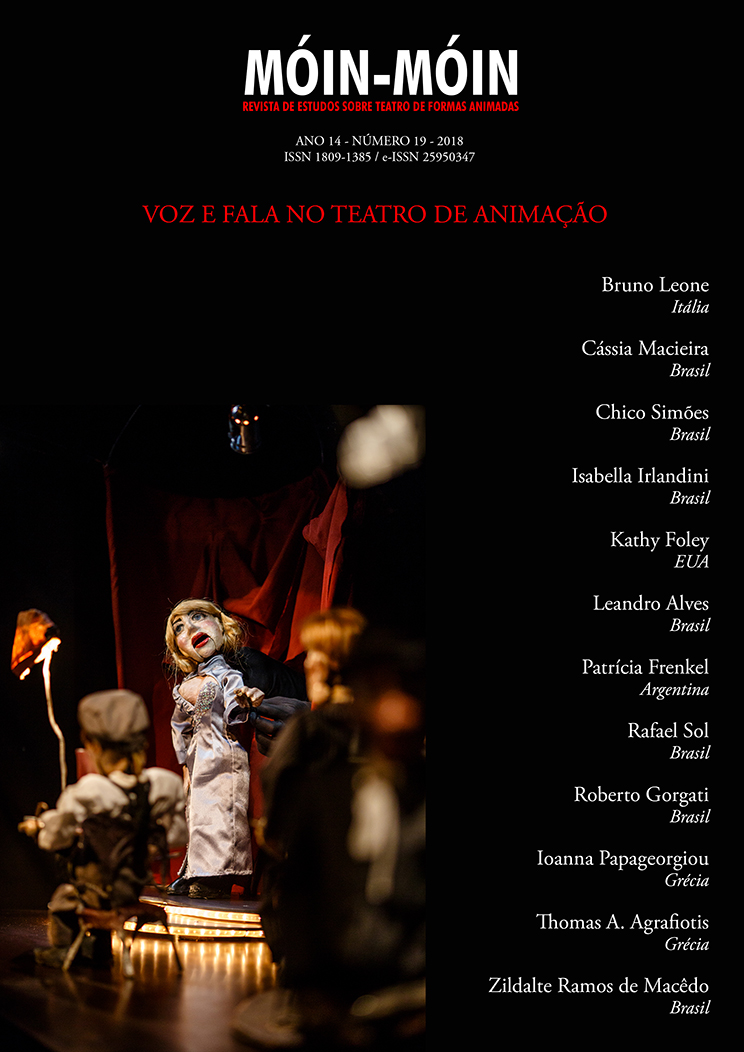The voice of the puppet
DOI:
https://doi.org/10.5965/2595034701192018119Resumo
The puppet as performing object invites vocalization that is different from the normal human voice. Choices to suit body size, stylized features, and the animated objects tendency toward extra-daily sound—song and music—reinforce the otherness of the performing object. Three major types of vocal concepts are presented: 1) the one person, many voices show, which can use different resonators, pitches, and speeds as exemplified in the wayang golek of West Java; 2) the two-voice show, where the puppeteer may speak with a voice modifier such as a swazzle and the dialogue interpreted by a more normative human voice, in traditional puppetry it will often be a musician or interlocutor/back chat who sits outside the booth; and 3) the multi-voice show where individual speakers are often used for each figure, while dialogue may pre-recorded, delivered from the side by appropriate voice actors, or by each of the individual manipulators who speak for their own figure.
Keywords: Voice. Puppet. Swazzle. Wayang Golek. Backchat.
Downloads
Downloads
Publicado
Como Citar
Edição
Seção
Licença
Ao submeter um artigo à Móin-Móin Revista de Estudos Sobre Teatro de Formas Animadas e tê-lo aprovado os autores concordam em ceder, sem remuneração, os seguintes direitos à Revista: os direitos de primeira publicação e a permissão para que a Revista redistribua esse artigo e seus metadados aos serviços de indexação e referência que seus editores julguem apropriados.
Os artigos cujos autores são identificados representam a expressão do ponto de vista de seus autores e não a posição oficial da revista Móin-Móin.
Plágio, em todas as suas formas, constitui um comportamento antiético de publicação e é inaceitável. A Revista Móin-Móin reserva-se o direito de usar software ou outros métodos de detecção de plágio para analisar os trabalhos submetidos.
![]()
Este obra está licenciado com uma Licença Atribuição-NãoComercial 4.0 Internacional






